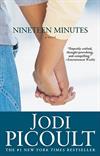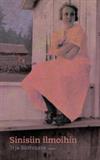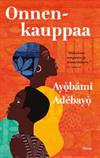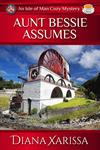
The Empire of Ignorance, Hypocrisy & Obedience: what's wrong with America, and w
7 journalers for this copy...
Journal Entry 1 by LeafOfHumanTree from Sydney CBD, New South Wales Australia on Friday, August 20, 2004
This copy is for my bookray (closed as of 23/8/04) for people outside Australia; it will be going to the US first. (I have another copy for an Australian book ring, which starts with Readinator.)
1)Shendoah (US)
2)RonOren (US)
3)Megi53 (US)
4)MargeryK (UK)
5)anna-angel (UK)
6)Brujula (France)>>> wild release? pass on to a friend?
Out of all the books available about George Bush, American politics, globalism, terrorism, democracy and the Iraq war, why did I choose this one? Because it offers suggestions for ordinary citizens - inside and outside the US - to take peaceful action over our concerns, and describes problems that are common to Western countries, not just America. "Government does not obey us, the people... and it partly explains why people feel powerless. To solve this, we don't need policies for government to implement, but actions for people to carry out - actions that force government to solve the problems we want solved."
This book makes me feel I can do something practical (peacefully and constructively) about the problems that concern me (genuine democracy, sustainability, peace, equality, better quality of life for all). It is written in a clear, jargon-free style, with summaries along the way to recap important points. I recommend reading the entire book or just Part Three (The Treatment), if you feel that Parts One on Two (The Symptoms and Diagnosis) will make you feel helpless. If you venture into Parts One and Two, you must read Part Three.
From the back cover:
"[This book]...offers a plan of action that everyone (American or not) can undertake to cure America. ...Part One compares the United States' self-image with the reality: the 'best way of life' that offers recurring wars and record-low social services; the 'cradle of democracy' that governs for corporations and attacks other countries; the 'land of plenty' that destroys the environment and leaves every sixth child in poverty; the 'beacon of justice' that employs biased judges and promotes inequality; and the 'land of the free' that demands compliance and imprisons a huge number of citizens."
1)Shendoah (US)
2)RonOren (US)
3)Megi53 (US)
4)MargeryK (UK)
5)anna-angel (UK)
6)Brujula (France)>>> wild release? pass on to a friend?
Out of all the books available about George Bush, American politics, globalism, terrorism, democracy and the Iraq war, why did I choose this one? Because it offers suggestions for ordinary citizens - inside and outside the US - to take peaceful action over our concerns, and describes problems that are common to Western countries, not just America. "Government does not obey us, the people... and it partly explains why people feel powerless. To solve this, we don't need policies for government to implement, but actions for people to carry out - actions that force government to solve the problems we want solved."
This book makes me feel I can do something practical (peacefully and constructively) about the problems that concern me (genuine democracy, sustainability, peace, equality, better quality of life for all). It is written in a clear, jargon-free style, with summaries along the way to recap important points. I recommend reading the entire book or just Part Three (The Treatment), if you feel that Parts One on Two (The Symptoms and Diagnosis) will make you feel helpless. If you venture into Parts One and Two, you must read Part Three.
From the back cover:
"[This book]...offers a plan of action that everyone (American or not) can undertake to cure America. ...Part One compares the United States' self-image with the reality: the 'best way of life' that offers recurring wars and record-low social services; the 'cradle of democracy' that governs for corporations and attacks other countries; the 'land of plenty' that destroys the environment and leaves every sixth child in poverty; the 'beacon of justice' that employs biased judges and promotes inequality; and the 'land of the free' that demands compliance and imprisons a huge number of citizens."
Came in today's mail. Perfect timing, I just finished a book last night.
Bloody Hell. I'm taking notes. I've fought hard the urge to grab my hilighter and mark the book up like crazy with notes written in the margin. I'm not even 100 pages in and I've got 4 pages of notes blast it! Mostly lots of arguemnts. :D Good thing I'm a Gemini or arguing with myself like this would bring lots of odd looks.
This is very slow going, mainly because I'm yelling at the book. Since I won't finish this quickly, I've ordered my own copy off Amazon, and will send this one on as soon as I get my copy. :D
This is very slow going, mainly because I'm yelling at the book. Since I won't finish this quickly, I've ordered my own copy off Amazon, and will send this one on as soon as I get my copy. :D
I'd just like to state one thing that is seriously pissing me off. Mainly the writer is an IDIOT. So far in the first half of the book, he is basing his arugments on the idea that the United States is a Deomocracy. to quote one of several references "...nothing justifies upsetting plain democracy to give one man 68 votes" (refering to the poplulation disproportion between the most populated state and the least populated state)
Here in lies the problem. AMERICA IS NOT A DEMOCRACY, it never has been. It is a DEMOCRATIC REPBULIC, an entirely different creature all together. It is a blend of a pure democracy, and a republic. The first of its kind I believe. (political history eluding me at the moment) Trying to rationalize the workings of a Democratic Republic based on the simplicity of a straight Democracy is deep failure in logical thinking. So far is is undermining the basic foundation of the book.
Here in lies the problem. AMERICA IS NOT A DEMOCRACY, it never has been. It is a DEMOCRATIC REPBULIC, an entirely different creature all together. It is a blend of a pure democracy, and a republic. The first of its kind I believe. (political history eluding me at the moment) Trying to rationalize the workings of a Democratic Republic based on the simplicity of a straight Democracy is deep failure in logical thinking. So far is is undermining the basic foundation of the book.
Journal Entry 5 by Shendoah at Controlled Release in Controlled Release, A Bookcrossing member -- Controlled Releases on Wednesday, October 13, 2004
Released 19 yrs ago (10/13/2004 UTC) at Controlled Release in Controlled Release, A Bookcrossing member -- Controlled Releases
WILD RELEASE NOTES:
RELEASE NOTES:
Went in the Mail today
Went in the Mail today
Just got it in the mail and I'm anxious to see what it's like. It seems a little more balanced, at least, than Michael Moore's version, but I'll know a little more about that in a few days, I guess.
I didn't go as far as Shendoah in taking notes, but I'm wondering if I shouldn't have. It would've made my task here and now so much easier. I have to do it from memory now and cannot put in the quotes I'd like to.
I'm disappointed with the book, as seems to happen with all the bash-Bush books (although I have to admit, this one is not about bashing Bush, but attacks deeper into society).
First of all, he is hardly impartial. Yes, I know he absolves himself in the introduction by saying he'll only describe the symptoms (i.e. the bad parts of society/government), but that doesn't make it any better. It's just a very easy way to get away with showing only one side of the story, behaviour he attacks the mainstream press for showing, but clearly is not free of himself.
Which brings me to my second point: for someone who attacks hypocrisy, he's surprisingly hypocritic himself. Another example: he chides a judge (or the judiciary system as a whole) for being unclear towards a jury (and with grounds, I should add), but tangles words himself later on. One that stuck in my memory is a poll of journalist of which a sizeable portion says (if I remeber correctly) that the news corporations fail in reaching the population (I don't have the exact quote, but I think it boied down to this). However, the author attaches the interpretation that journalists are disappointed with the quality of the news, an interpretation to which I do not agree (but that's his and my right, of course). The problem is that he presents the interpretation as a fact, which I can't believe it is.
Third, I don't think he does give tangible advice to the regular citizen. To people outside the US, maybe; but his strongest points are clamoring to have governments 'denounce' the US administration and boycotting American products. Both of which will work only if people combine in large groups, and he doesn't give a clear idea how to do this.
Inside the US, there's two things he stresses: get together and talk to people and a national referendum is of high importance. I agree to both, but he skips over some steps. Like, how will a national referendum be implemented, if the whole system is mortally against it? Or, how will these local discussion groups grow into a nation-wide grassroots movement? What will happen if you try to talk to your neighbour or milkman and he actually likes what's going on? All of these question, he brushes aside with an it'll happen by itself when necessary (again, not a quote, but the gist). For someone who defines the "hard problem" (and does it well), he skips over the hardest part of the problem far too easy.
There's more: he has a paragraph devoted to critical reading. I couldn't agree more! But if he advocates critical reading of all articles, books, etc., why doesn't he mention being critical towards his very book? Isn't that the logical place to start? If his book is good, it'll survive the test of criticism and grow only stronger! But by not mentioning himself, he turns as vain and self-righteous as he makes the Times out to be.
Of lesser importance, but irritating to me: why does he stress the point that he doesn't advocate conspiracy theories when he clearly does? True, he doesn't say that people actually get together in a room and decide to screw people over, but isn't that about the narrowest definition of a conspiracy theory possible? Saying that the government promotes the interest of corporations rather than the people is, according to me at least, just as much a conspiracy theory. Which doesn't make it necessarily bad, but why denying it?
Having said all this, I have to say there are redeeming factors. I think I does a great job in analyzing the facts, in giving (his) interpretations to the acts of government, to why Iraq gets invaded but not Saudi-Arabia (to name just any example). I also like the fact that he doesn't attack Bush, but the whole last 40 years of American politics. That's not anti-Americanism speaking, that's my feeling for justice. And, most importantly, I totally agree about some of the wrongs in this country (or the whole world, I'm not sure how far it extends)!
All in all, it's been an interesting glimpse into the world and mind of the people that make up the anti-globalist movement. I do feel the same in some respects, but other parts are as alien to me as I expect Bush's brain and ideas to be. Even if I don't agree with everything and sometimes felt the need to hurl the book against a wall, I did enjoy seeing the 'other side'. I'm really grateful to LeafOfHumanTree for sharing it, and I hope s/he doesn't mind people disagreeing with him/her ;-)
I'm disappointed with the book, as seems to happen with all the bash-Bush books (although I have to admit, this one is not about bashing Bush, but attacks deeper into society).
First of all, he is hardly impartial. Yes, I know he absolves himself in the introduction by saying he'll only describe the symptoms (i.e. the bad parts of society/government), but that doesn't make it any better. It's just a very easy way to get away with showing only one side of the story, behaviour he attacks the mainstream press for showing, but clearly is not free of himself.
Which brings me to my second point: for someone who attacks hypocrisy, he's surprisingly hypocritic himself. Another example: he chides a judge (or the judiciary system as a whole) for being unclear towards a jury (and with grounds, I should add), but tangles words himself later on. One that stuck in my memory is a poll of journalist of which a sizeable portion says (if I remeber correctly) that the news corporations fail in reaching the population (I don't have the exact quote, but I think it boied down to this). However, the author attaches the interpretation that journalists are disappointed with the quality of the news, an interpretation to which I do not agree (but that's his and my right, of course). The problem is that he presents the interpretation as a fact, which I can't believe it is.
Third, I don't think he does give tangible advice to the regular citizen. To people outside the US, maybe; but his strongest points are clamoring to have governments 'denounce' the US administration and boycotting American products. Both of which will work only if people combine in large groups, and he doesn't give a clear idea how to do this.
Inside the US, there's two things he stresses: get together and talk to people and a national referendum is of high importance. I agree to both, but he skips over some steps. Like, how will a national referendum be implemented, if the whole system is mortally against it? Or, how will these local discussion groups grow into a nation-wide grassroots movement? What will happen if you try to talk to your neighbour or milkman and he actually likes what's going on? All of these question, he brushes aside with an it'll happen by itself when necessary (again, not a quote, but the gist). For someone who defines the "hard problem" (and does it well), he skips over the hardest part of the problem far too easy.
There's more: he has a paragraph devoted to critical reading. I couldn't agree more! But if he advocates critical reading of all articles, books, etc., why doesn't he mention being critical towards his very book? Isn't that the logical place to start? If his book is good, it'll survive the test of criticism and grow only stronger! But by not mentioning himself, he turns as vain and self-righteous as he makes the Times out to be.
Of lesser importance, but irritating to me: why does he stress the point that he doesn't advocate conspiracy theories when he clearly does? True, he doesn't say that people actually get together in a room and decide to screw people over, but isn't that about the narrowest definition of a conspiracy theory possible? Saying that the government promotes the interest of corporations rather than the people is, according to me at least, just as much a conspiracy theory. Which doesn't make it necessarily bad, but why denying it?
Having said all this, I have to say there are redeeming factors. I think I does a great job in analyzing the facts, in giving (his) interpretations to the acts of government, to why Iraq gets invaded but not Saudi-Arabia (to name just any example). I also like the fact that he doesn't attack Bush, but the whole last 40 years of American politics. That's not anti-Americanism speaking, that's my feeling for justice. And, most importantly, I totally agree about some of the wrongs in this country (or the whole world, I'm not sure how far it extends)!
All in all, it's been an interesting glimpse into the world and mind of the people that make up the anti-globalist movement. I do feel the same in some respects, but other parts are as alien to me as I expect Bush's brain and ideas to be. Even if I don't agree with everything and sometimes felt the need to hurl the book against a wall, I did enjoy seeing the 'other side'. I'm really grateful to LeafOfHumanTree for sharing it, and I hope s/he doesn't mind people disagreeing with him/her ;-)
Journal Entry 8 by LeafOfHumanTree from Sydney CBD, New South Wales Australia on Saturday, October 23, 2004
No, I don't mind people disagreeing with me or criticising this book (I didn't write it!) Thanks for writing a detailed journal entry. I'm happy if this book gets people talking, debating and reading other books as well. :)
Is it just me, or does he use the word "she" somewhat disproportionately when referring to any random person, a judge etc.? Is he scrupulously following grammar, referring to feminine words by "she"? Or is it some attempt to equal rights? Or far simply: is it just me seeing things that aren't there?
Well, anyway, it's on its way to Megi53 now. I'll be looking forward to her findings ;-)
Well, anyway, it's on its way to Megi53 now. I'll be looking forward to her findings ;-)
Just arrived a few minutes ago in today's mail.
This will be my nonfiction read for the coming week. I'm looking forward to it; hope it will give me some practical ideas to help our nation.
This will be my nonfiction read for the coming week. I'm looking forward to it; hope it will give me some practical ideas to help our nation.
A very easy read, which surprised me, as thick as it is and as many notes as it has at the end.
I already knew much of the information, but in the second chapter, "The Cradle of Democracy", I learned why Democratic candidates in the U.S. seem so conservative and are such "wimps"; and how corporations affect presidential elections.
The most exciting information came in Chapter 15, "Resistance". It described Australia's compulsory voting and the system known as "instant runoff voting". America's adopting these two policies, together with allowing third parties to be represented proportionally in Congress, would go the furthest to make a significant, positive change in our government.
There were several ideas I found uncomfortably extreme, starting with the suggestion that people outside the U.S. use the internet White Pages to find a random address and write a long letter to an American that ends, "The whole world will think poorly of Americans if you put the Republicans back in power. I wish you a long and happy life."
Downshifting and buying less I've heard before, but WORKING less? Sabotaging your employer on the way out? And *gasp* rewriting the Constitution?? The author is probably right about the desirability of that last one, but I can't imagine it in my lifetime.
I liked the lesser-known quotes from the U.S. Founding Fathers, and the use of Noam Chomsky's writing.
Author Julian Ninio signed the book; a nice touch.
On the way to MargeryK via Global Priority mail.
I already knew much of the information, but in the second chapter, "The Cradle of Democracy", I learned why Democratic candidates in the U.S. seem so conservative and are such "wimps"; and how corporations affect presidential elections.
The most exciting information came in Chapter 15, "Resistance". It described Australia's compulsory voting and the system known as "instant runoff voting". America's adopting these two policies, together with allowing third parties to be represented proportionally in Congress, would go the furthest to make a significant, positive change in our government.
There were several ideas I found uncomfortably extreme, starting with the suggestion that people outside the U.S. use the internet White Pages to find a random address and write a long letter to an American that ends, "The whole world will think poorly of Americans if you put the Republicans back in power. I wish you a long and happy life."
Downshifting and buying less I've heard before, but WORKING less? Sabotaging your employer on the way out? And *gasp* rewriting the Constitution?? The author is probably right about the desirability of that last one, but I can't imagine it in my lifetime.
I liked the lesser-known quotes from the U.S. Founding Fathers, and the use of Noam Chomsky's writing.
Author Julian Ninio signed the book; a nice touch.
On the way to MargeryK via Global Priority mail.
This lovely book came through the post last week. I've just finished reading 'Globalization and its discontents' by J Stiglitz so we'll see how this shapes up as a follow up.
Thanks everyone!
Thanks everyone!
What to say about this book? I don't like the way it was written. The personal flavour to it made me uneasy and less likely to believe what he says. I also dislike the way he uses 'she' as the third person pronoun of choice, mainly because he uses it inconsistently. Nice idea but it just came across as patronising. I also dislike his use of the first person plural. He also contradicts himself concerning the portrayal of black people in television sitcoms, but I digress!
I'm not wholly convinced of this syndrome business either, and I also feel that limiting his focus on America kind of ignores the whole phenomenon of globalisation, and factors that may once have been particularly American can now be seen in many other countries. I am worried that his argument is similar to bolting the stable door once the horse has escaped.
I found his discussion of juries and the legal system interesting, and the discrepencies in being a secular state and yet having 'In God we Trust' et al ingrained into the society.
I must say I will think twice about which movies I go and see, and whether it was a result of reading this book or having a recommendation from my brother I bought 'Goodbye Lenin' on DVD on my way back from London yesterday. I wanted to support other nations' cinema.
Not the best exposition of America I've read, but it did make me think, which is no bad thing.
I'm not wholly convinced of this syndrome business either, and I also feel that limiting his focus on America kind of ignores the whole phenomenon of globalisation, and factors that may once have been particularly American can now be seen in many other countries. I am worried that his argument is similar to bolting the stable door once the horse has escaped.
I found his discussion of juries and the legal system interesting, and the discrepencies in being a secular state and yet having 'In God we Trust' et al ingrained into the society.
I must say I will think twice about which movies I go and see, and whether it was a result of reading this book or having a recommendation from my brother I bought 'Goodbye Lenin' on DVD on my way back from London yesterday. I wanted to support other nations' cinema.
Not the best exposition of America I've read, but it did make me think, which is no bad thing.
Posted off to anna-angel yesterday!!
First of all, sorry for not making an entry sooner. I got this in december and read a great deal of it travelling on trains through sweden but i had to take a break in the middle and read some fiction. I like the book actually, it has a lot of interesting information in it. Although it does irritate me how he's pushing some things to extremes when they're not. Like the whole thing about how the world would be a lot better and more harmonious if we didn't have tvs. Maybe it would, but he's taking it too far. One thing that quite fashinates me though is reading about the american election (2000) in light of the recent ukrainian election. When evidence was shown that all votes hadn't been counted the people protested until they got a recount. What happened in america? The discussions were mostly wheter the votes were to be counted at all. Maybe if the people had been a bit louder we'd had a different world today. Just something to think about.
It'll probably be a while still before i've finished the book but just thought i'd let yo know it's safe here with me :)
Anna
It'll probably be a while still before i've finished the book but just thought i'd let yo know it's safe here with me :)
Anna
I enjoyed the first part but it got so slow towards the end that i couldn't finish it. Sorry for taking so long with it, it's on its way now.
I received this book today! Thank you anna-angel, and LeafOfHumanTree!
As I have many books to read (and pass), and this book deserves to be really read (I think it might be a slow read), I'll take advantage of beign the last on the bookray to take my time, and then either pass it on, or set it free!
As I have many books to read (and pass), and this book deserves to be really read (I think it might be a slow read), I'll take advantage of beign the last on the bookray to take my time, and then either pass it on, or set it free!







